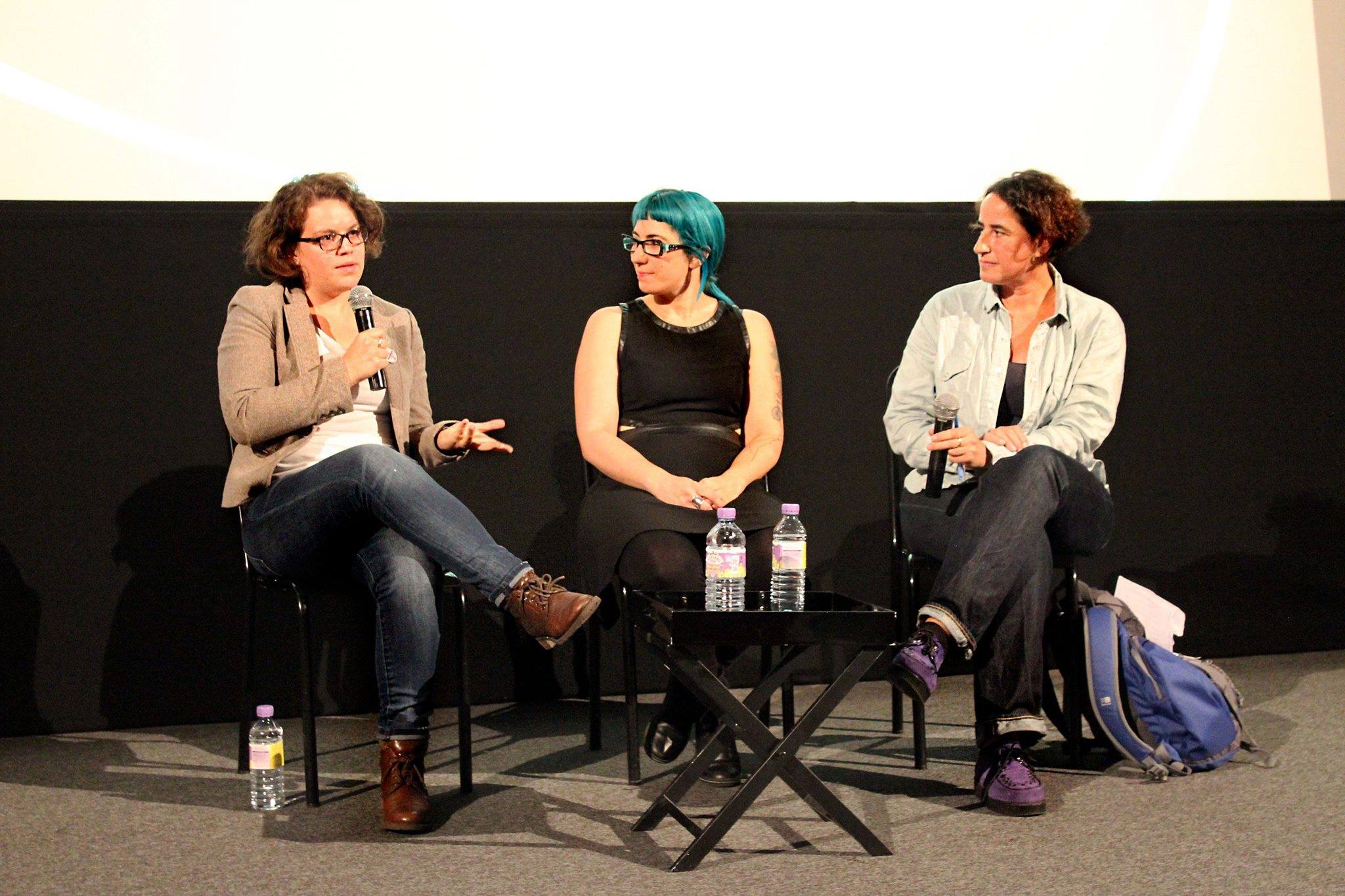Women shouldn’t have to regret the choice they’ve made but it remains at the core of their decision on whether or not to have children.
The London Feminist Film Festival (LFFF) returned to the United Kingdom this year, showcasing films, documentaries and short features.
The IPF had the opportunity to review Magenta Baribeau’s documentary, ‘No Kids For Me, Thanks!’, which follows the stories of people who have decided not to have children, documenting the stigma that comes with that choice.
Magenta, who has always been an artistic child, was born in Quebec, Canada. She studied Film Production at Concordia University in Montreal and some of her directing inspirations are Woody Allen, Todd Solondz, George Romero, Tim Burton and others.

Panellists at the screening of ‘No Kids For Me, Thanks!’ [Image credit: London Feminist Film Festival]
“It was only when I turned 30 that I got inspiration for ‘No Kids For Me, Thanks!’ Everyone asks, ‘When are you having kids?'”
Maman? Non merci!/No Kids for Me, Thanks! just received it’s first award. I’m in tears! #LFFF2016 #childfree #London pic.twitter.com/4C2kAuYZvV
— Magenta Baribeau (@Maman_non_merci) August 21, 2016
Many women in the audience related to Magenta’s experience of being pressured to have children at the “right time”, regardless of their choice or career path.
The documentary, which was released in 2015, follows the narratives of individuals, both female and male, and their decision to stray from the socially constructed natal plan. The film features stories based in Quebec, Brussels and Paris.
Lucie Joubert, a writer showcased in the documentary, said that women who decide not to have kids are seen as having an “internal deformity”. Lucie discusses the refusal to have children as a subject that is still regarded as taboo, and how women are still only viewed through their ability to procreate.
She suggests regret is used as a social construct – women shouldn’t have to regret the choice they’ve made but it remains at the core of their decision on whether or not to have children.
One woman notes that the constant re-questioning of her own decision made her feel as if she was not able to make this choice by herself. The constant doubt that society makes these women feel, harks back to Joubert’s views on regret and guilt.

Panellists at the screening of ‘No Kids For Me, Thanks!’ [Image credit: London Feminist Film Festival]
Reflecting on her film, Magenta said the film is “too white” because it “only shows white women”. She explained that it was hard to find diverse voices during castings. The lack of voices means that people often avoid talking about motherhood, making it an even harder topic to discuss.
To find out more about ‘No Kids For Me, Thanks!’ and Magenta Baribeau’s upcoming projects, visit her IMDb page and follow her on Twitter.

